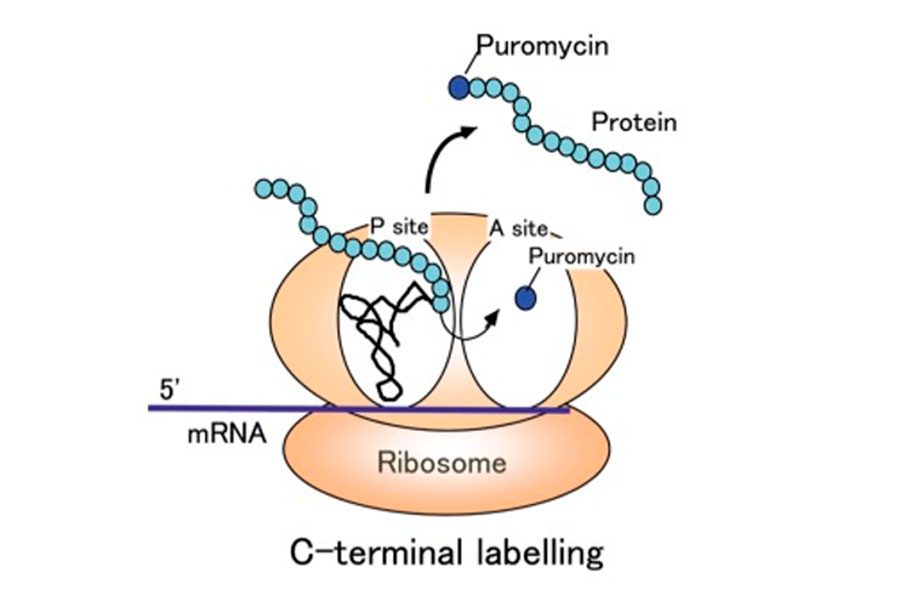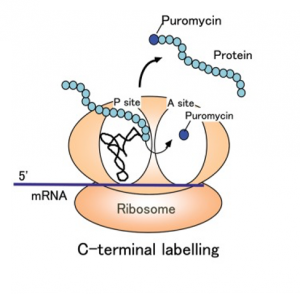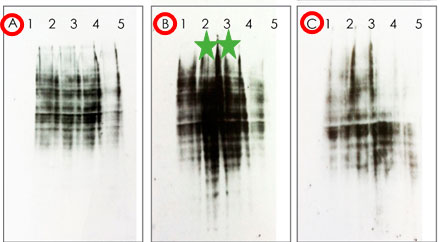Effect of immunostimulant pronutrients in macrophages

INTRODUCTION
An in vitro test, carried out in a private laboratory in Spain in 2015, researched the molecular mechanisms of the immunostimulant effect of a natural product rich in pronutrients.
Pronutrients are molecules of botanical origin that produce the activation of a target cell, which in this case are macrophages, and induce an increase in the translation of RNA to proteins.
In order to calculate the effect of pronutrients on the mRNA-protein translation rate, a technique called SUnSET (Surface Sensing of Translation) was used.
SUnSET technique is a non-radioactive method for monitoring protein synthesis in cell populations, based on the use of puromycin. Puromycin is a tyrosyl-tRNA analogue that can join newly synthesized proteins by a peptide bond, so the detection of puromycin by an anti-puromycin antibody (a technique called Western Blot-ELISA) can be correlated with the translation rate mRNA-protein.

Picture 1: Protein synthesis and puromycin incorporated to a protein.
METHODOLOGY
In vitro assays were performed in 12 wells, where 1.2 × 105 cells/ml were added in a final volume of 2 ml per well.
After 4 days of culture, confluence was observed, and the medium was replaced with different supplements, following the scheme described below:
ASSAY A (Control): Only puromycin is added.
ASSAY B (Samples): Puromycin and the natural immunostimulant are added.
ASSAY C (Control). Puromycin and cycloheximide are added. Cycloheximide is an inhibitor of protein synthesis.
RESULTS (Picture 2)
Assay A indicates the basic protein synthesis, visible thanks to the use of puromycin marker.
Assay B shows an increase in protein synthesis using immunostimulant pronutrients (Nº 2 and 3 in the picture, labelled with stars), visible thanks to the puromycin marker.
Assay C is used as an evidence of the inhibition of protein synthesis caused by the administration of cycloheximide, revealed thanks to the use of puromycin as a marker.

Picture 2: Western Blot results
CONCLUSIONS
In conclusion, this natural immunostimulant, based on pronutrients, increases mRNA-protein translation rate.
A higher rate of mRNA-protein translation correlates with an increase in the production of tissue-specific proteins and, therefore, a better performance of the target organ.
This improvement at the physiological level leads to an increased resistance to infectious diseases and lower mortalities in farm.
